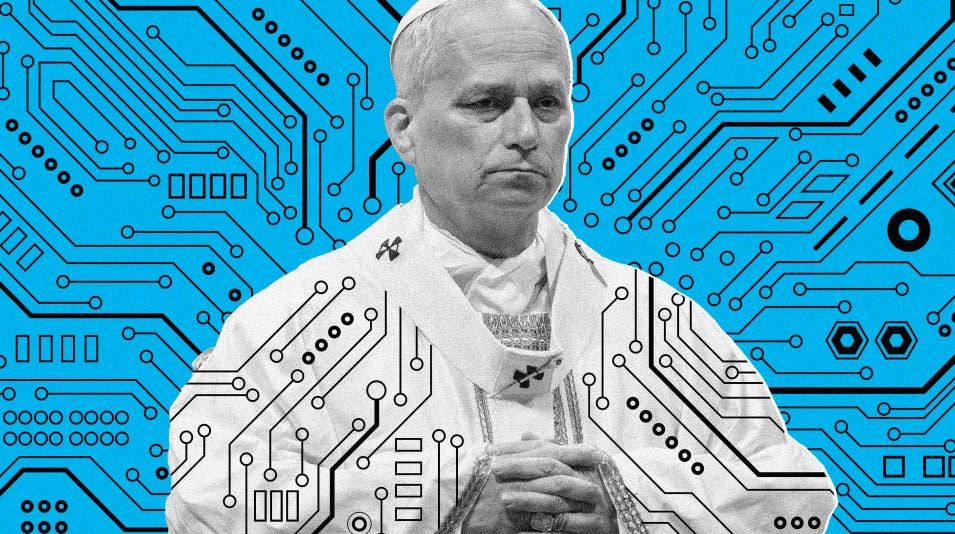The Vatican knows an ‘Industrial Revolution’ when it sees one
THE ATLANTIC
The pope didn’t take long to explain why he picked the name Leo. Two days after his election, he cited his inspiration: the preceding Pope Leo, who led the Church while the West confronted the social and economic disruptions of the Industrial Revolution.
The world now faces “another industrial revolution,” Leo XIV said last month, spurred not by mechanized manufacturing but by artificial intelligence.
In particular, he noted the challenges that AI poses to “human dignity, justice, and labor,” three concerns that his 19th-century namesake prioritized as he responded to the technological transformations of his time.
In 1891, Leo XIII published Rerum Novarum, a moral and intellectual framework that addressed the growing inequality, materialism, and exploitation ushered in by the Industrial Revolution.
The current pope has signaled that AI’s arrival demands a similar intervention; if the earlier Leo’s tenure is any indication, it could be the most ambitious and enduring project of Leo XIV’s papacy. Rerum Novarum will be a guiding influence.
Leo XIII insisted in Rerum Novarum that labor is both “personal” and “necessary” for each individual, and that societies should protect the dignity of their workers as they pursue economic growth. Idolizing capital widens inequality, hence the “misery and wretchedness” that many employers inflicted on much of the working class during the Industrial Revolution.
The pope stated that socialism was no solution, but that employers must guarantee their workers reasonable hours, just wages, safe workplaces, and the right to unionize.

